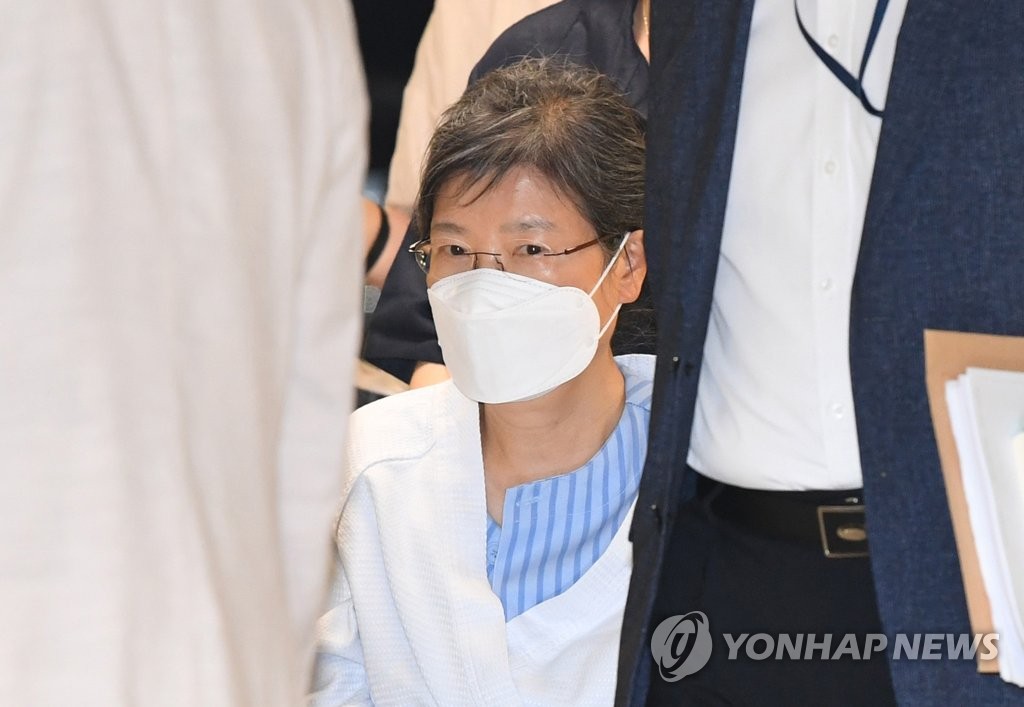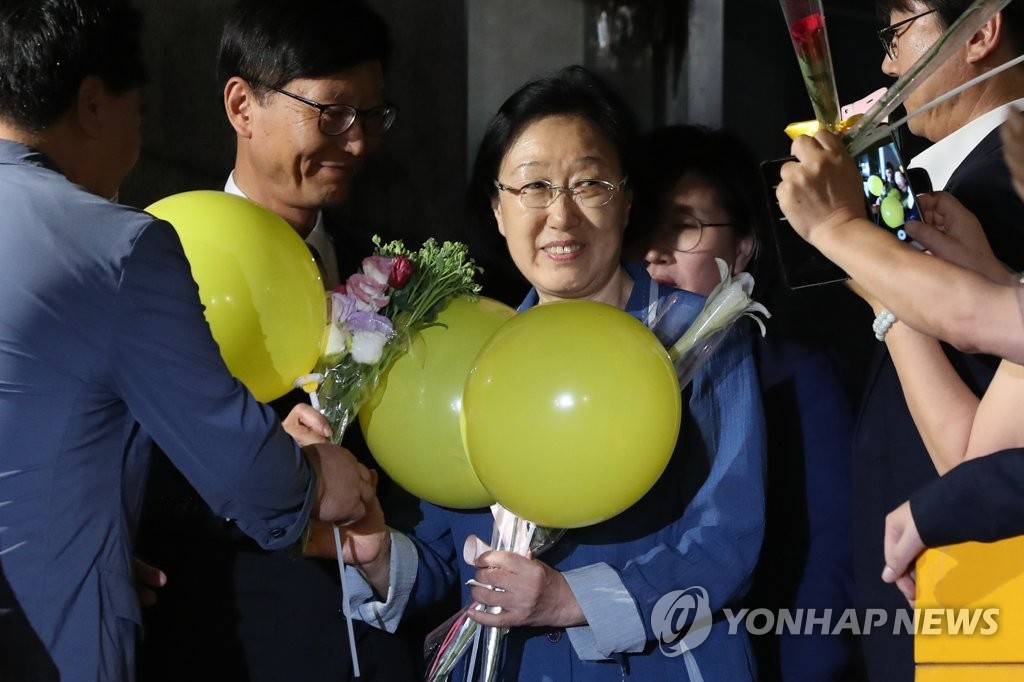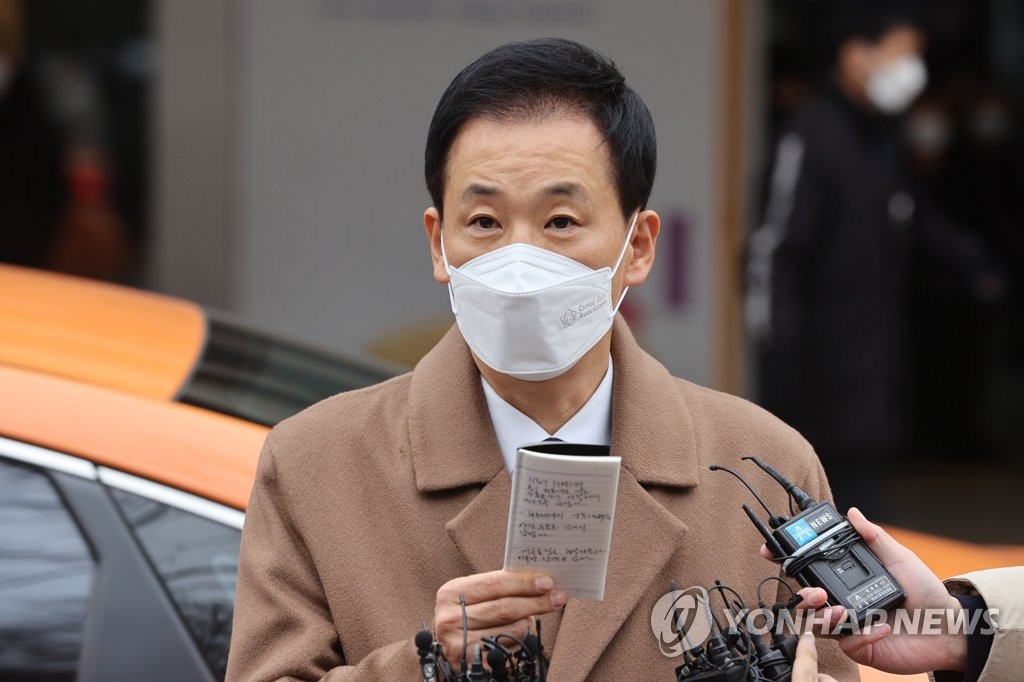- California Assembly OKs highest minimum wage in nation
- S. Korea unveils first graphic cigarette warnings
- US joins with South Korea, Japan in bid to deter North Korea
- LPGA golfer Chun In-gee finally back in action
- S. Korea won’t be top seed in final World Cup qualification round
- US men’s soccer misses 2nd straight Olympics
- US back on track in qualifying with 4-0 win over Guatemala
- High-intensity workout injuries spawn cottage industry
- CDC expands range of Zika mosquitoes into parts of Northeast
- Who knew? ‘The Walking Dead’ is helping families connect
S. Korea grants special pardon to ex-President Park Geun-hye
South Korea’s government on Friday announced a special pardon for Park Geun-hye, the former president currently serving a 22-year prison term for corruption, saying that pardoning Park would help bolster national unity.
Park has been serving a combined 22-year prison sentence since March 2017 after being impeached and removed from office over far-reaching corruption charges and an influence-peddling scandal.
The 69-year-old former president was included in a list of 3,094 pardon beneficiaries who are scheduled to be released on New Year’s Eve. The amnesty was decided in consideration of her deteriorating health.
This year, Park was hospitalized three times due to chronic shoulder and lower back pain. In 2019, she received shoulder surgery. She is expected to be released from state custody at Samsung Medical Center in southern Seoul, where she is currently receiving treatment, according to officials.
Granting a pardon to Park is expected to have a significant impact on next March’s presidential election, as Park has commanded the support of voters in Daegu and North Gyeongsang Province, a stronghold of the main opposition People Power Party.



Detained former President Park Geun-hye enters Seoul St. Mary’s Hospital in Seoul in a wheelchair to treat a chronic disease, in this July 20, 2021, file photo. (Yonhap)
The government also announced it will exonerate Han Myeong-sook, former prime minister during the liberal Roh Moo-hyun administration who was convicted of bribery and has served her full prison sentence.
Han, who served as prime minister from 2006 to 2007, was imprisoned from 2015-2017 after being convicted of accepting about 900 million won (US$795,000) in illegal political funds from a late businessman while in office.
She has long claimed innocence, arguing that she never accepted the money and that the charges against her were fabricated as part of political revenge by a conservative government against the Roh administration.
Former President Lee Myung-bak, who is currently serving a 17-year prison sentence over embezzlement and bribery convictions, was excluded from the pardon.
The government said the decisions were made as a means of overcoming a nationwide crisis prompted by the COVID-19 pandemic by moving forward from “the unfortunate history of the past and achieving a grand unity among the people.”
In a government briefing, Justice Minister Park Beom-kye said the former president’s pardon was discussed during a two-day meeting of the ministry’s amnesty review committee earlier this week. The minister said the health factor “was a very important criterion” in the amnesty decision.
On the exclusion of Lee from being offered amnesty, the minister said the circumstances surrounding the two former presidents “were different” and added the government had to take into consideration the “public sentiment” in reaching its decision.
The government also decided to exonerate 315 people convicted of election irregularities, and either pardon or exonerate 65 activists convicted of their connection with anti-government protests. Some 983,000 non-felony offenders in cases, such as traffic violations, will also be offered clemency.
In response to her pardon, Park thanked Moon for making the decision “despite difficulties” and also expressed gratitude to the public, according to Yoo Yeong-ha, a lawyer and a close aide of Park. Yoo conveyed Park’s message to reporters at Samsung Medical Center.
Park will likely continue to receive hospital treatment for the time being, Yoo explained. Where she will stay after leaving the hospital remains unclear for now, as Park’s private home in southern Seoul was auctioned off to an unrelated private citizen, Yoo added.
“We are looking into where she could stay after leaving (the hospital),” Yoo said. Park plans to focus on regaining her health and doesn’t plan to meet politicians or any other people at the hospital, he added.











